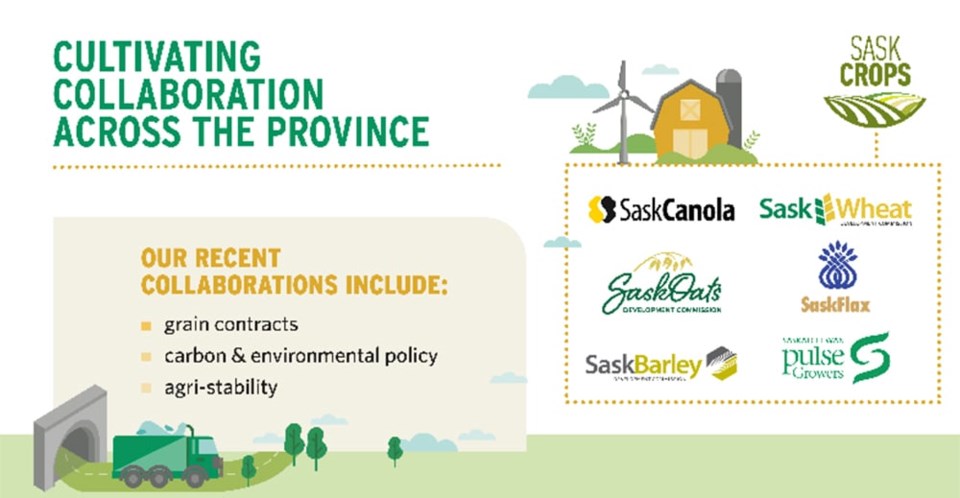WESTERN PRODUCER — Saskatchewan crop commissions are uniting under a new banner on certain policy issues.
SaskCrops was formed by Saskatchewan Pulse Growers, the Saskatchewan Canola Development Commission, the Saskatchewan Wheat Development Commission, the Saskatchewan Barley Development Commission, the Saskatchewan Flax Development Commission and the Saskatchewan Oat Development Commission.
“Crop commissions in Saskatchewan have worked closely together for many years but have put a little bit more formality around that collaboration,” SaskPulse executive director Carl Potts said during a recent podcast explaining the creation of .
He said growers have sent a clear message that they do not want commodity groups duplicating efforts or working at cross purposes with one another on policy issues involving the whole farm.
When the federal government started unveiling various agriculture-related environmental initiatives, the groups decided to respond with a unified voice.
The impetus was when farmers tabled resolutions at all the annual general meetings a couple of years ago regarding Ottawa’s carbon tax reform and fertilizer emission reduction targets.
SaskCrops was created to deal with those two resolutions and other whole farm policy issues that arise, said SaskCanola executive director Tracy Broughton.
“It really made sense to work together as one,” she said.
The organization spent considerable time on the fertilizer emissions reduction target issue, submitting written comments to various consultations and meeting directly with federal and provincial politicians and bureaucrats.
The initiative with the biggest impact was a letter to the Prime Minister’s Office emphasizing the importance of protecting food productivity in an environment of mounting global food insecurity.
“That really helped to change the conversation with the federal government,” said Broughton.
Potts said growers also want recognition for emissions reduction efforts. That is an ongoing lobby effort with the federal government.
SaskCrops is also working on other issues like grain contracts.
Mercantile Consulting Venture was hired to prepare a report, released last year, detailing problems with existing contracts and recommending changes.
Potts said SaskCrops plans to push for more uniform and reasonable administration fees, which are all over the map.
Broughton said SaskCrops is also working on the seemingly never-ending Canada Grain Act review.
It will push for improved grain export sales reporting requirements, because farmers need better data to help market their grain.
SaskPulse chair Trent Richards said farmers in the United States have had good export data at their fingertips for more than two decades and Canadian growers need similar information.
Broughton said recent changes to the AgriStability program are an example of what can happen when commodity groups work together.
After an initial deadlock, federal and provincial governments agreed to increase the compensation rate to 80 percent from 70 percent. SaskCrops was one of the groups lobbying for that change.




